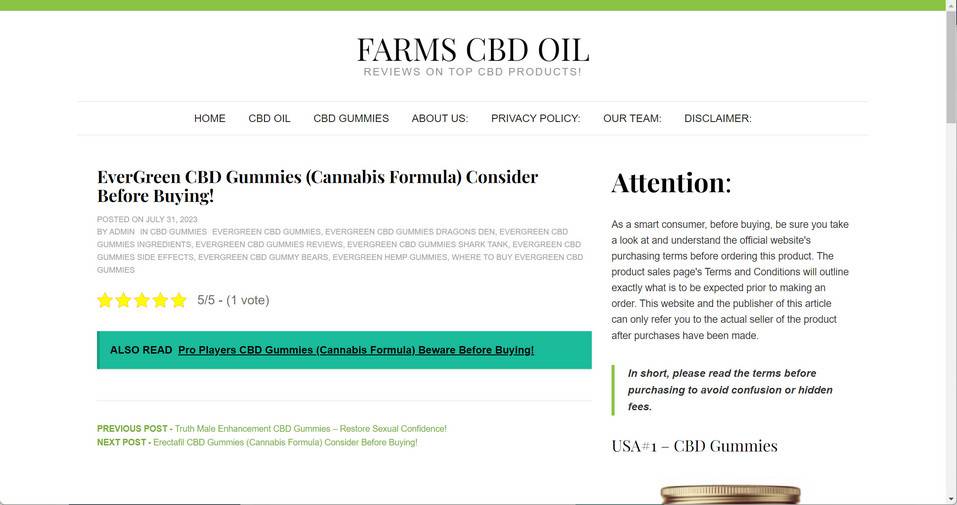With over 100 million Americans attempting a keto diet annually, a hot new market has emerged – keto gummies. These supplements claim to offer effortless ketosis, boost weight loss, and suppress appetite using quality ingredients.
- Overview of Keto Gummies Scams Exploiting Diet Trends
- How Keto Gummy Scams Work to Trap Buyers
- The Fake Celebrity Endorsement Tactic Ensnaring Keto Gummy Buyers
- Lisa’s Story – Deceived by a Shark Tank Keto Gummy Ad
- What To Do If You’re A Victim of a Keto Gummy Scam
- Speak to Your Physician Before Attempting Keto Gummies
- Frequently Asked Questions About Keto Gummy Scams
- The Bottom Line on Avoiding Keto Gummy Scams
But are the dramatic results advertised real or just slick marketing ploys to hook consumers into recurring credit card charges? In most cases, the latter.





Overview of Keto Gummies Scams Exploiting Diet Trends
As the high-fat, low-carb ketogenic diet exploded in popularity for its ability to incite rapid weight loss, an exploitative offshoot emerged – keto gummies. These supplements promise to induce ketosis safely and effortlessly, allowing customers to reap optimal fat-burning while still enjoying carbohydrates cheating the system.
However, an investigation reveals that nearly all brands peddling keto gummies online do so through deceptive marketing and financial tricks. The gummies themselves provide minimal real benefits besides placebo effects and sugar highs. Behind the scenes, anonymous scammers are profiting off desperation.
How Widespread Are Keto Gummy Scams Today?
In 2023, over 88,000 complaints were filed with the FTC regarding subscriptions, free trials, and false advertising related to weight loss pills and gummies. This includes keto supplements specifically. The BBB has issued warnings about keto scams since 2018 as well.
Still new brands emerge constantly under the radar. Many victims don’t report, so likely hundreds of thousands have been affected based on keto diet popularity. Until regulations address the core tactics, these scams will continue proliferating.
Recurring Schemes Found in Keto Gummy Scams
Though specifics vary across brands, nearly all keto gummy scams contain these elements:
- AI-generated fake celebrity endorsement videos
- Obvious stock model photos used as extreme “transformations”
- Too-good-to-be-true claims around instant weight loss
- Positive reviews posted only on the brand’s sales website
- Risk-free trial fine print enrolling customers in subscriptions
- Strong-arm retention tactics keeping buyers from cancelling
- Anonymous company owners who quickly rebrand after complaints
This consistent blueprint reveals the likely coordination between various keto scam companies more focused on profits over products. The gummies themselves are secondary to the shady billing practices.
The Emotional and Financial Impacts of Keto Gummy Scams
Beyond just credit card fees, keto gummy scams can leave much deeper scars. The false promises play on body image insecurities, then betray vulnerable customers when they most needed genuine support. Additionally:
- Users experience side effects like nausea from untested ingredients
- Monthly billing for unwanted products worsens financial hardship
- Failure of promised weight loss worsens shame and self-esteem
- Wariness over trying other diets after being scammed leads to health risks
- Anger, depression, and betrayal require counseling to process for some
For those dealing with obesity or eating disorders already, these scams amplify emotional damage. Unethical companies will keep profiting this way until sharper regulations emerge.
What Allows Keto Gummy Scams to Persist and Spread?
Despite outrageous claims and mounting complaints, keto gummy scams continue spreading from shady digital marketers to vulnerable social media users. But why? Several key factors enable their proliferation:
- Huge demand for weight loss solutions makes sales easy
- Lack of premarket testing requirements for supplements
- Difficulty prosecuting anonymous company owners who disappear
- Affiliate marketing spreads disinformation rapidly
- Shame prevents many scam victims from alerting authorities
- Failure to screen advertised claims versus real clinical evidence
Until these systemic gaps get addressed, new keto scams will always replace old ones. Maintaining vigilance remains essential to avoid falling prey.
Keto gummies scams reveal gaping holes in consumer protections where digital marketing claims vastly outpace regulatory oversight. Companies tout miraculous benefits and celebrity connections without accountability. Behind the scenes, recurring credit card fees fund anonymously-run schemes experts label outright fraud.
Consumers navigating difficult weight loss journeys must place extra scrutiny on supplement claims that seem too good to be true. Checking clinical evidence, physician approval, and avoiding free trials limits risk exposure. With awareness, we can work toward a transparent marketplace showing true care for those struggling, not just exploiting their hopes.
How Keto Gummy Scams Work to Trap Buyers
The schemes start with fake celebrity connections. They leverage shady financial tricks like predatory credit card recurring fees. When contacted, they deny responsibility while changing names frequently. Learn their step-by-step scam blueprint:
Step 1 – Create TV Celeb Affiliations With Deepfake Videos
Using AI and doctored footage, scammers make videos where Mark Cuban or other entrepreneurs praise their keto gummies. These appear as Facebook/Youtube ads and falsely imply Shark Tank endorsements.
No disclaimer reveals the fakes. And voices discussing remarkable weight loss results sound eerily realistic though completely fabricated. Most won’t realize the clever deepfakes are fake.
Step 2 – Plaster Websites With Outrageous Transformation Photos
Landing pages show gummies producing extreme results – obese women shriveling to thin sizes in weeks. But these photos are usually stolen stock images or computer generated composites. No real before/after proof exists.
Fake testimonials also overflow with users praising immediate appetite suppression and “effortless” fat melting. This aims to reinforce the gummies’ credibility.
Step 3 – Hook Customers Via Risk-Free Trial Offers
To lower purchase barriers, sites promote free trials just charging a modest $5 shipping fee. Users need only enter payment info and the gummies will arrive to try.
Hidden terms mentioned in passing later reveal that customers are automatically enrolled in expensive monthly subscriptions. Facing these unexpected charges leaves many distraught but stuck.
Step 4 – Make Cancellation an Arduous Process
Victims who call to cancel get looped through confusing phone menus. Emails receive no reply.
If they do reach a representative, strong-arm tactics like guilt trips encourage staying enrolled. Tactics delay cancellation until after the next monthly charge processes.
Step 5 – Bury Negative Feedback and Rebrand Quickly
To suppress bad press, scammers remove critical reviews from their sales sites. Simultaneously, new brands launch frequently with clean reputations.
Angry customers struggle finding the operators again once names change. And starting over with fresh sites enables the gummy scams to resume deceiving buyers.
Step 6 – Pocket Profits and Deny Involvement
When authorities come calling, the operators claim innocence and shutter operations. With identities hidden, they resurface rapidly under new companies and names.
They keep scamming without consequences due to difficulty tracking and prosecuting. Only after many complaints can regulators take action halting the endless rebranding chicanery.
This cycle continues bringing huge sums to scammers and headaches to endless victims. Only through public awareness can shoppers make better decisions avoiding these recurring traps.
The Fake Celebrity Endorsement Tactic Ensnaring Keto Gummy Buyers
Perhaps the most insidious tactic used by keto gummy scammers is manipulating social media ads to falsely imply credible celebrity endorsements for their products. Using AI voiceovers and deepfake video technology, they target dieters where they’re most vulnerable – Facebook, Instagram and Tiktok.
Keto Gummy Scams Love Pretending “Shark Tank” Love
The biggest fake endorsement trend seen is implying investment or praise from entrepreneurial TV show Shark Tank through doctored videos. Mark Cuban, Kevin O’Leary, and other investors appear discussing or showing dramatic before/after photos from using specific keto gummies.

Through strategic use of doctored footage and AI voice generation, these ads aim to convince potential buyers a keto gummy has secured praise and funding from the business experts on the hit show. Some even use terms like “biggest deal in Shark Tank history.”
Let this article set the record straight – no Shark Tank investors have endorsed or invested in any keto gummy products, ever. These ads are unequivocal fakes preying on the trust viewers place in the show’s cast to exploit buyers. The Sharks want consumers to know they have no stake in any diet pill schemes.
So remember – despite what any too-good-to-be-true social media ad claims with seemingly genuine investor footage, all keto gummies remain unaffiliated with Shark Tank. Scrutinize remarkable claims, read impartial reviews, and confirm trial offer terms before providing payment details to any supplement advertiser. Your savvy skepticism is the best defense against these manipulative celebrity-invoking scams.
Other Celebs and Influencers Get AI Endorsements Too
Beyond Shark Tank, scammers create deepfake social media ads showing Dr. Oz, Ellen Degeneres, Oprah Winfrey and more recommending their keto gummies. Voices sound eerily accurate praising rapid fat loss from using the products.
Influencers also get their likenesses used to target younger demographics on Instagram and TikTok. But every single case is an AI-generated, unauthorized fake. No actual famous figures have endorsed these scammy keto brands.
The Goal: Trick Dieters Into Visiting Sales Pages
These deepfake social media ads aim to steer viewers to the keto gummy brand’s website, which overflows with more manipulation tactics. Fake transformational photos, reviews and free trial offers create a complete illusion of legitimacy and value.
The celebrity angles provide the initial bait, building enough trust so buyers hand over credit card information without adequate scrutiny. This exposes them to recurring subscription fees for ineffective gummies.
The next time you see a miraculous diet pill ad supposedly endorsed by a celebrity, maintain the highest skepticism. Verify the claims completely outside that seller’s website before making any purchase to avoid the latest keto gummy scam. Your financial and emotional health depends on wariness.
Lisa’s Story – Deceived by a Shark Tank Keto Gummy Ad
Lisa, a 32-year old mother of two from Ohio, reached out to us to share how she ended up losing over $600 falling for a keto gummy scam earlier this year. Her story is a cautionary tale in carefully researching products advertised through celebrity claims and free trial offers.
“I saw a video on Facebook where all the Shark Tank investors were raving about a new keto gummy called NutriZen Keto ACV that promoted easy weight loss. Having tried losing my baby weight for over a year without success, I clicked on it hoping this could be the solution I needed.
The NutriZen site showed before/after photos of people losing up to 30 pounds in a month using their gummies. I thought for the free trial cost of $4.99 for shipping, why not give it a shot? However, when the first bottle arrived, I realized I had been signed up for their monthly VIP subscription at $98 per bottle!
When I emailed to cancel, NutriZen refused to issue a refund for the unopened bottles they had charged me for without my consent. I tried for weeks to contact the company and cancel the subscription, but could never get an answer besides an automated message. In total I lost over $600 before I was finally able to get my bank to stop the recurring charges.
I now realize the Shark Tank endorsement was completely fake. I wish I had researched NutriZen Keto ACV gummies more thoroughly before that free trial. All those ridiculous claims should have been warning signs. I learned my lesson – no more free trials ever again!”
Stories like Lisa’s are all too common today. Stay vigilant, and share your own experiences to help protect others from falling for the latest keto gummy scams.
What To Do If You’re A Victim of a Keto Gummy Scam
Falling for a keto gummy scam can generate feelings of anger, embarrassment and powerlessness. But by taking swift action, you can minimize damage and achieve some recourse:
1. Call Your Credit Card Company
Alert them it’s a fraudulent charge. Provide details on the deceptive trial terms and monthly billing practices. They can freeze future charges pending investigation.
2. Gather Evidence on the Company
Compile order emails, product packaging, trial terms, cancellation attempts, and anything demonstrating willful deception. These will bolster your case when disputing the charges.
3. File Complaints
Submit scam reports to the FTC, BBB, and consumer protection groups. Provide copies of evidence. While slow, these complaints can build momentum for legal action if enough victims speak up.
4. Leave Online Reviews
Post your experience on third-party rating sites to warn others. Describe the specific deceptive claims like fake celebrity ads used to mislead you. Prevent the company from claiming more victims.
5. Seek Legal Counsel
If other resolution tactics fail, contact a consumer law attorney. Possible options include small claims court or joining a class action suit with other scammed buyers to recover lost money.
By acting quickly and decisively when discovering a deceptive keto gummy scam, you can limit financial losses and bring consequences to crooked companies exploiting dieters seeking real weight loss solutions. Don’t suffer in silence or embarrassment – take back control.
Speak to Your Physician Before Attempting Keto Gummies
With the hype around supplements promising easy and rapid weight loss, it can be tempting to jump right to purchasing the most dramatic-sounding keto gummy option. However, medical experts agree – discussing any major dietary change or supplement plan with your physician first is vitally important.
This ensures your doctor can review your full medical history, identify any contraindications, and monitor your health throughout the process. Reasons speaking to a doctor first when considering keto gummies is wise include:
- They can verify if your body mass index qualifies as obese, for which keto is indicated.
- Certain conditions like liver or kidney disease may prohibit a ketogenic diet as unsafe.
- Your doctor may recommend more gradual changes or different diets that better suit your needs.
- They can identify possible medication interactions with keto gummies.
- Blood work during the process allows ensuring you remain healthy.
- Your physician can pinpoint root causes like thyroid issues sabotaging weight loss attempts.
While the internet provides lots of opinions on supplements, your doctor is uniquely familiar with your medical background and can guide you toward evidence-based options proven to be safe. This protects both your health and wallet.
Beware of keto gummy brands marketing directly to customers while urging you skip your doctor’s advice. Their priority is sales, not your wellbeing. Discuss any major diet or supplement with a trusted physician first.
Frequently Asked Questions About Keto Gummy Scams
1. How can I spot a keto gummy scam?
Look for these common red flags:
- Claims of extreme weight loss like 20+ lbs per month
- Too good to be true celebrity endorsements on social media
- Success stories only listed on the product’s website
- Requires credit card for alleged “free trials”
- No real company name or contact info listed
If a keto gummy sets off multiple scam warnings, proceed with maximum caution before purchasing.
2. What ingredients are in keto gummies?
Keto gummy scams often include untested ingredients like garcinia cambogia, apple cider vinegar, or “proprietary blends” hiding lower dosages. Look for proven ketosis-generators like beta-hydroxybutyrate (BHB) salts. And verify clinical proof backing the specific formula.
3. Do keto gummies really produce ketosis?
Some gummies contain BHB salts which can raise ketone levels mildly. However, most keto gummy products contain minimal effective dosing. And no gummy alone can “effortlessly” induce ketosis equal to strict dieting. Claims of instant or easy ketosis are exaggerations.
4. How can companies advertise weight loss?
Unlike pharmaceuticals, the supplement industry faces minimal regulations over advertising claims. Companies can state dramatic results without proof which enables scams. Always check for third party clinical trials supporting a keto product’s specific claims around fat burning.
5. Why use celebrity endorsements?
Images of celebrities build familiarity and trust rapidly. Scammers know showing a famous face like Mark Cuban or Ellen DeGeneres makes buyers more likely to overlook unrealistic claims and purchase. But any endorsement seeming too perfect is likely fabricated via AI deepfakes.
6. What are “free” trials and why are they risky?
Keto gummy free trials require your credit card information to cover a small shipping fee. Hidden terms later bill you every month until you manage to cancel. This auto-enrollment results in surprise recurring fees you won’t avoid unless cancelling within an undislosed trial window.
7. How can I cancel unwanted keto subscriptions?
Call customer service and email requesting immediate cancellation. Get written confirmation. If unable to reach them, contact your credit card company to halt payments for fraudulent charges related to hidden trial terms. File complaints urgently to prevent being billed again next month.
8. What if I was already scammed – can I get a refund?
Contact the retailer and your credit card company to request refunds of any unauthorized or deceptive charges related to hidden trial terms. Provide evidence of your cancellation attempts. You may need to work with your bank or lawyers to recover lost money if the company refuses refunds. File an FTC complaint.
Stay vigilant – with so much money in diet pills, scammers will keep crafting new ways to exploit hopes. Let skepticism guide your research into keto gummy claims and trial offers.
The Bottom Line on Avoiding Keto Gummy Scams
With obesity impacting tens of millions, many consumers desperately turn to “miraculous” diet solutions promoted online. This vulnerability enables keto gummy scammers to exploit hopes through exaggerated claims masking ineffective products.
Luckily, awareness of their common schemes – fake celebrity ads, doctored reviews, hard-to-cancel subscriptions – makes identifying scams easier. Wise buyers confirm physician approval, study ingredients, and avoid free trials requiring credit card info. Prioritizing health over hype remains the key to safely losing weight without regret.




